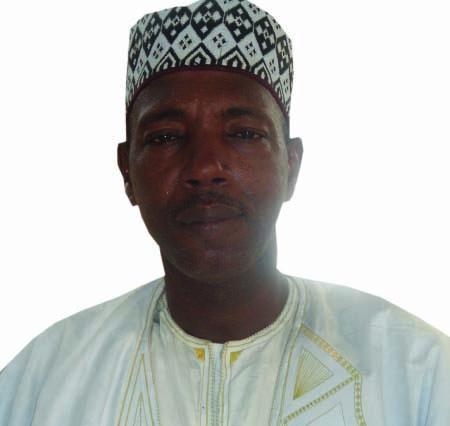
By suggesting in statements he made recently that corruption retarded progress in the country’s agricultural sector, and that it negatively affected programmes and projects in agriculture, President Yahya Jammeh did admit that there was corruption under his watch in the past two decades.
So said opposition leader Hamat Bah, referring to the past sacking of senior officials working under the ministry of Agriculture or projects under the ministry, including the most recent arrest and detention of 12 officials who worked in the sector.
Hon. Bah is leader of the opposition National Reconciliation Party, NRP. He was speaking recently to reporters at a press conference held at his party secretariat, and responded to a question about the issue of corruption, and government plans to set up the national anti-corruption commission.
According to Hamat Bah, one of the reasons he has said “Jammeh is going to fail in 2016” - referring to President Jammeh’s Vision 2016 initiative for attainment of national food security - the fact that “they are not learning from what happened in the past”.
He recalled that there was the Jahally Patcharr project, as well as the RDP 1 and RDP 2 projects, during the first Republic. He said lessons should have been learned from the outcome of these and similar past projects in the country.
Hamat Bah, in expressing concern about the policies and approach in agriculture, also hoped “they don’t create Yahya Jammeh farms in the country; I hope they would not create them, as they go about encouraging people to grow more rice” since, in his view, that would be a recipe for failure.
Commenting on the proposed anti-corruption commission, Bah said: “From what I have learned, in most parts of Africa, they use it to witch-hunt people who disagree with them; who are not in the same political line with them, in most places.
This was seen in Nigeria, he added, where it was used to arrest opponents of the government, who were in office before, charging them with corruption and to stop them from contesting elections.
“Anti-corruption commissions in Africa have never worked well anywhere, that’s the issue. Yes, it’s an effort he’s making; let’s wait and see.
“May be they succeed. But, historically, from what we have seen, they’re used as tools to get people that disagree with them or as tools to finish opposition elements, who have served in government before”, Bah further stated.


